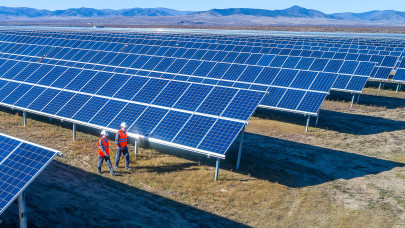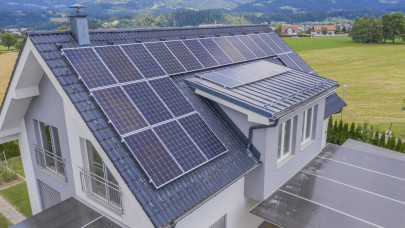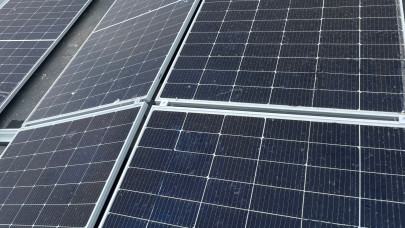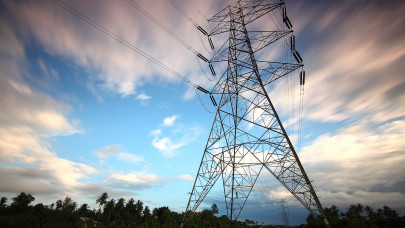The Romanian Energy Poverty Observatory (ORSE) is a project initiated by the Center for the Study of Democracy, a think-tank established in 2006 within the Department of Political Sciences, Faculty of Political, Administrative and Communication Sciences, "Babeș-Bolyai" University Cluj, within which it functions as an accredited research center.
The above-mentioned solutions regarding the dedication of European funds to combat energy poverty have been expressed countless times by ORSE experts, in the framework of consultations and public appearances in which they have participated. Some of these conclusions can be found in the point of view formulated by the Economic and Social Council (ESC) regarding REPowerEU.
"Even if we are going through a period of energy crisis that brings many challenges related to the increase in prices, this is also a moment of great opportunity, because European funds that can be used for vulnerable consumers and the treatment of energy poverty are readily available. Romania must not miss this opportunity. Our assessments show that the national policies to address the energy crisis and those of the green transition may fail to target vulnerable consumers", declares Anca Sinea, Vice President of the Center for the Study of Democracy Association and coordinator of ORSE.
"All European policies in the field say that financing programs for photovoltaic panels, heat pumps, and energy efficiency of homes should prioritize vulnerable consumers and those in energy poverty. At the moment, none of our existing programs prioritizes such consumers. The funds available through REPowerEU must put vulnerable consumers at the center of investment programs - whether we are talking about household consumers or SMEs - and thus contribute to reducing energy poverty", declares Corina Murafa, ORSE energy, and climate expert and an ESC member.
The essence of the REPowerEU investments and reforms package is to reduce energy poverty and the effects of the crisis at the level of the European Union. Given that low energy efficiency is one of the major factors leading to energy poverty, measures such as improving the insulation of buildings inhabited by vulnerable consumers and replacing their heating and cooling systems with modern types of equipment are the most effective way to tackle energy poverty. In addition to the low efficiency in relation to the heating need, old stoves can also produce other associated effects, such as environmental and indoor pollution or various respiratory diseases.
In addition to reducing consumption by increasing the energy performance of buildings, modern heating solutions must be deployed, such as heat pumps, energy-efficient stoves, but also other types of equipment for the production and consumption of renewable energy: thermal solar panels to produce hot water, photovoltaic panels, storage solutions, etc. At the same time, the deployment of renewable heating sources for municipalities, such as heat pumps at the district/block level, should be encouraged.
As the ORSE experts have repeatedly pointed out, currently, the only remedy for energy poverty applied is strictly financial, consisting of heating aid, without financing structural remedies. Such measures could solve the causes of this phenomenon that affects millions of Romanians in the medium and long term, as opposed to the very short-sighted measures applied now.
Regarding the reforms to be included in the REPowerEU package in the NRRP, ORSE experts agree with the ESC point of view and recommend measures to remove legislative obstacles in the way of energy communities. At the same time, it calls for the creation of favorable legislative and fiscal conditions for the development of renewable energy communities, a means to alleviate the energy crisis and lift people out of energy poverty.
Legislation is also needed to prioritize vulnerable consumers in all public funding programs addressing prosumers and to remove obstacles regarding their rapid connection to the grid.
Another necessary reform is the elaboration in a multi-institutional framework of the National Action Plan on Energy Poverty, an obligation provided more than 10 years ago in the Energy Law. For the permanent, real, and complete assessment of energy poverty, special attention should be paid to the exchange of data between institutions, corroborating data related to household income, consumption, and the energy status of the home. As ORSE has previously signaled, at the moment, each institution pursues data collection in isolation from other state institutions. To manage this multidisciplinary theme of energy poverty and the correct exchange of data, ORSE recommends the creation of a tripartite consultation tool (involving authorities, companies in the energy sector, and consumer associations) at the Government level, based on existing best practice models and ways of working, such as the model of the Department for Sustainable Development.
This real exchange of data and the correct identification of vulnerable consumers are necessary to be able to optimize budget transfers to cover the increase in energy costs. Currently, as was recently seen with the Austerity Ordinance, the ceiling-compensation system cannot cover, from the perspective of limited budget revenues, all consumers in Romania for the time needed. That is why it is necessary to identify, based on several criteria, which consumers need to be helped first.













